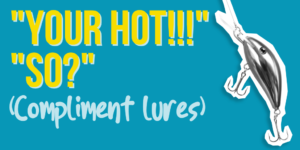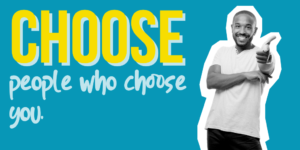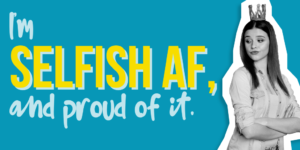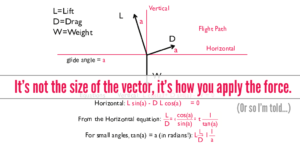This writing is now available as a podcast episode!
Today’s prompt was inspired over 2 years ago, but for whatever reason, I never wrote it. It kept getting shuffled to the end of the writing queue.
Until today.
When I realized that I kept putting it off because it’s such a large topic.
So, inspired by my decision to create the The Red Flags Diaries series a week ago, I decided to start FRAMED!
And really, I started it a couple days ago with my writing and podcast, It’s My World. You’re Just Living In It, which is all about how we all live in our own frames.
And that’s OK. In fact, as I noted, some scientists think it’s beneficial and necessary to do so.
A commenter pointed out that sometimes those frames are harmful. And they are right. And sometimes those frames are helpful but not as helpful as they could be.
So, how do we change them?
Well, as I said in my previous writing, one way is to engage with others. Learn about their ideas and beliefs and experiences, and add them to your own.
Ask questions, and believe the answers, even when they are radically disparate from your own point of view.
You don’t have to believe IN the answers. Just believe that they exist for others.
But that’s often difficult. And threatening to our personal well-being and belief systems.
So, today, I’ll talk about widening our frames for ourselves.
How to make your frame bigger, different, and/or add more perspective.
I’m thinking of a mindset as a frame, and a frame as being the boundary of a work of art. A painting, in my mind. You may see a collage or a weaving (think of Fate and her threads) or something else entirely.
In my metaphor, the work of art is life. How we see it, how we experience it, and everything that is possible to sense and experience within it. All of the colors we can see, all of the shapes—every sense imaginable. Bounded by what we can comprehend.
Some things will crash into our art from elsewhere. We have no control over that.
I was in a hit-and-run car crash just over two years ago. That was NOT an intended part of my art or experience. I had no choice but to incorporate it, and many things since as a result. It changed my entire life in many ways.
Some things, though, we can control, and if not control, at least influence in our lives, invite them in, seek them out, and grow from and with them.
Here are a few ways to change your frame on your own.
Change your physical location. Sometimes just a change of scenery can make a difference. Go outside, take a walk, drive, visit a museum or a library.
Exercise. Sometimes a focus on something else will allow your brain to process in the background and give you that shift of perspective. Exercise is scientifically proven to make people feel better in MOST cases.
Laugh. Watch your favorite funny movie, videos on YouTube, google “dad jokes,” or start collecting horrible puns (ever read Spider Robinson?).
Meditate. Science is studying meditation and finding some amazing benefits to the mindfulness and focus practice. It’s been credited with many things, including a shift in perspective.
Be grateful. Take a few moments to note three things that you are grateful for. The act of being consciously grateful changes our body and brain chemistry.
Shift your vision. Looking at the short term right now? Something that happened yesterday? Look far into the future, and plan backwards from there. That can give an entirely different view.
Talk with someone you trust. Get a perspective from someone you trust to engage you where you are, with openness and honesty.
Do something you know is important that you’ve been putting off. Just getting that one thing done can clear up some mental space for other stuff.
Make the opposite true. Take whatever belief you’re working with right now, and find a way to make the opposite true. Learn to understand the other perspective, or play with what you would have to believe in order to make it true. You don’t have to BELIEVE it. Just ask “What if you believed it?” and think about how might that change you.
Take a small risk. Even a small risk gets your heart rate up and your endorphins going. Take that risk, then think about your situation. Our brains work differently in various modes.
Go extreme. If a small risk is not enough, and it isn’t for many, extreme sports or at least more risky action might be the answer. Get out there, do something exhilarating, and get a different look at life.
Look for the silver lining. Sure, it’s usually just a hindsight activity. There can be value in looking for and planning the silver lining even while you’re in the middle of the storm.
Do something just for fun. Sometimes we let the seriousness of life and responsibility get to us. Shake it off. Have fun and laugh.
Practice some self-care. I mentioned a while back in one of my writings how our love languages can help us with self care. I’m actually being interviewed this evening for a KinkyCast podcast episode on that topic as well.
Take a five-minute break. Or 10, or 20 minutes. Time it. Do something completely different. Run up and down the stairs, read a book, play with your dog. THEN come back to whatever you’re thinking about.
Journal. Writing can help us organize our thoughts. Also, once you’ve written, read it out loud to yourself. Reading what you’ve written can help with understanding your thinking better and hearing it can help parse the language in ways simply thinking it does not.
Of course, these are not the be-all-end-all of frame change ideas. Far from it. They are just a smattering to give you inspiration to get started, should you want to.
In my next FRAMED! piece, I’ll start looking at specific thought frames and how we can reframe them for perspective and benefit.
What do YOU do?
Do you ever consciously reframe your thoughts? What are your favorite methods? What works best for you?
I look forward to your ideas and experiences.








